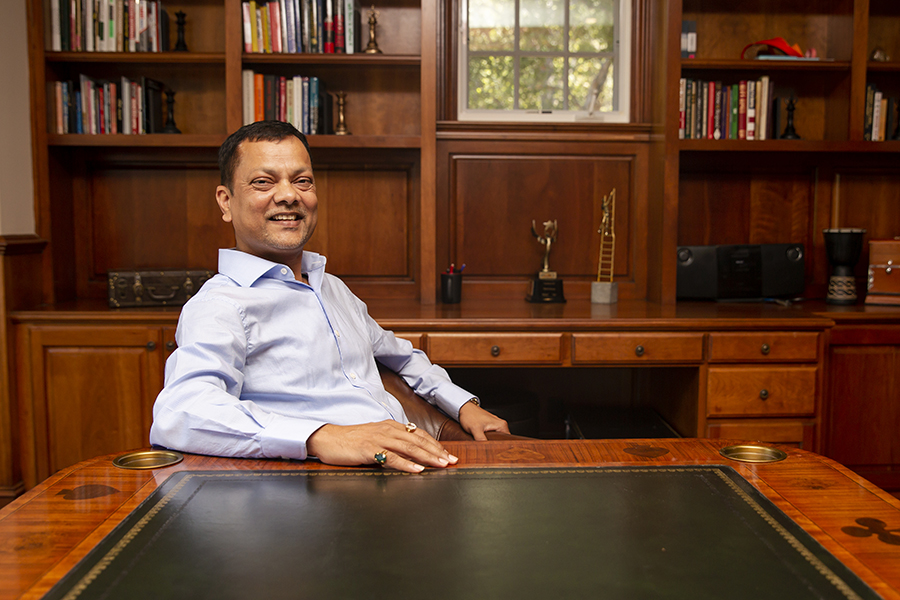Purchasing travel insurance, once a painfully slow, paper- and fax-based process, is now a seamless online purchase. But it wasn’t always so simple, that is, until a determined Silicon Valley engineer, in the U.S. on an H-1B visa, decided it was time to revolutionize the market.
On June 22nd, President Trump issued a proclamation barring many categories of foreign workers and curbing immigration visas through the end of the year. The temporary ban included the H-1B type of visa for high-skilled workers that many U.S. tech companies employ. Not surprisingly, Silicon Valley shuddered. Leaders like Apple Inc. Chief Executive Tim Cook, Tesla Inc. CEO Elon Musk and Sundar Pichai, boss of Google-parent Alphabet Inc., all roundly condemned the move. After all, attracting skills from abroad has been the primary force that has propelled America into a global technology leader, creating plenty of opportunities abroad and hundreds of thousands of jobs, and massive amounts of wealth, here at home.
One of those skilled foreign workers, who personifies the American dream is Rajeev Shrivastava, who came to the U.S. from India in the late 1990s. After earning a master’s degree in computers from the National Institute of Technology Raipur. After working as an engineer at Cisco Systems Inc. for several years, Shrivastava decided to spread his wings and become an entrepreneur.
In the early 2000s, the popularity of travel insurance increased vastly as global travel grew, and growing numbers of visitors to the U.S. became aware of costly medical expenses in a country without universal healthcare coverage. This was most acute among the well-paid foreign workers in Silicon Valley, who often had their families and parents visit — with an increased need for medical coverage. Here, Shrivastava saw a great opportunity.
“Because the importance of travel insurance was never conveyed to travelers, they were unaware of the risks,” explains Shrivastava. “Hard lessons were learned after many suffered a serious injury or illness and got hit with a five-figure medical bill.” Rajeev knew that if people were aware of the risks in traveling to the U.S. without coverage, they would purchase travel insurance. It led him to start his own company, VisitorsCoverage.
In creating a platform for travel insurance, Shrivastava knew that the entire process had to be simplified and that educating customers was vital. He wanted the policy document to be three pages instead of 30 and wanted customers to choose between customized travel insurance products.
Leveraging his computer and technology background, Rajeev developed patents for the online search, comparison, and purchase of travel insurance — long before the term ‘insurtech’ was even part of the corporate world’s lexicon. To date, Shrivastava’s company is the only travel insurance reseller to hold registered patents for the online purchase process.
He also took advantage of video and animation to create a knowledge center that explained travel insurance through voice and visuals that were cross-cultural and entertaining. In addition, they built a vendor-neutral travel insurance review website, VisitorsInsuranceReviews.com, which gained widespread popularity among foreign workers.
Thanks to Shrivastava’s patented technologies, he found a niche with the Asian markets and quickly became the largest seller of visitors’ insurance for travelers coming to America. But he still wasn’t satisfied. The travel medical plans he sold had been designed years prior and offered the same benefits, regardless of the traveler’s varied needs.
More customization was necessary in 2017 when changes to U.S. immigration policy created more headaches for travelers visiting the U.S. Shrivastava was the first to introduce border entry protection, that covered the expense of returning home should entry be denied.
Sometimes, Shrivastava has even innovated ahead of trends. An example was his creation of SafeCruise in early 2019, a customized travel insurance policy that addressed the unique needs of cruise travelers, including missed port departures, hurricane coverage, and emergency evacuation for virus outbreaks (now a prescient coverage clause) along with other medical emergencies.
Like other industries, the travel insurance industry has been hard-hit by a wave of travel cancellations from the coronavirus pandemic. It might take one, maybe two, years for global travel to return to the levels it saw before the pandemic shook the world. But even here, Shrivastava sees opportunity.
“The pandemic crisis is an incredible moment for the travel insurance industry to rethink the legacy models and burdensome regulation that the industry is indebted to. This is our chance to elevate travel insurance and create flexibility in underwriting that will be critical to ensuring travelers are safe in a post-COVID world.”




































